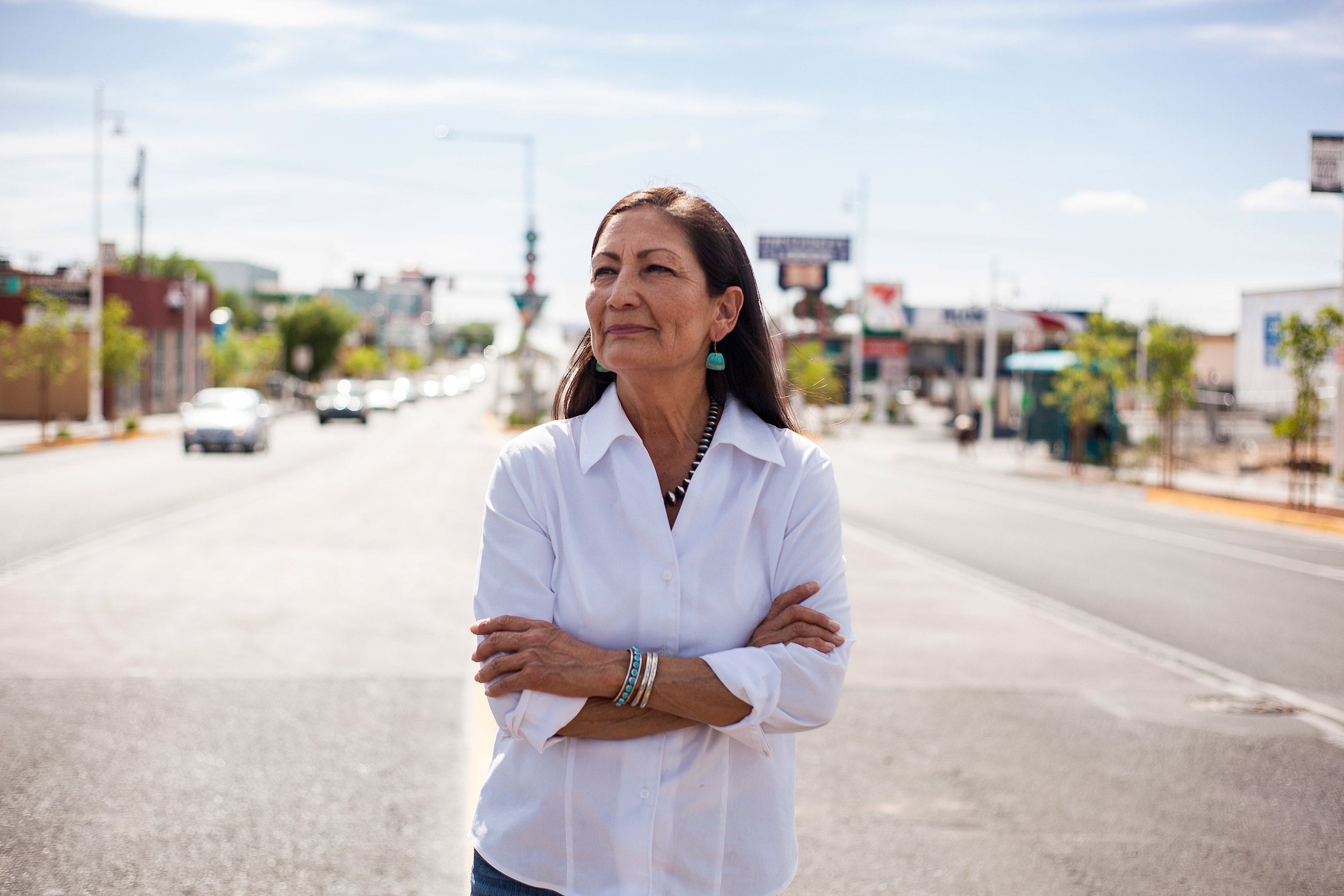
Rep. Deb Haaland of New Mexico is an enrolled member of the Pueblo of Laguna.
AP Photo/Juan Labreche
For the first time, a Native American may oversee U.S. policies on tribal nations
Community members discuss selection of Deb Haaland as new secretary of Interior
If she wins Senate approval, Democratic Rep. Deb Haaland of New Mexico will become the first Native American Cabinet secretary. But perhaps more importantly, as secretary of the Interior, the enrolled member of the Pueblo of Laguna would also become the first Native person to oversee federal policies involving the 574 federally recognized tribal nations as well as the national parks and public lands. For many, her selection brings history full circle.
After learning of her nomination, Haaland, a 35th-generation New Mexican who in 2018 became one of the first two Native American women elected to Congress, tweeted, “A voice like mine has never been a Cabinet secretary or at the head of the Department of Interior.” The Gazette asked some members of the community for their thoughts on the historic nomination.
Rose Lincoln/Harvard Staff Photographer

Victor A. Lopez-Carmen, M.D. ’23
Enrolled member of the Crow Creek Sioux Tribe
Student at Harvard Medical School
Before Medical School, I got to clerk for the Natural Resources Committee in the U.S. House of Representatives, a committee Rep. Haaland is the vice-chair of. Working with her and her staff on committee hearings and legislation, especially those concerning missing and murdered Indigenous women, was an experience I will always be grateful for. This is because Congresswoman Haaland exemplifies the powerhouse nature of Native American women. The extent to which Native American women lead, guide, and build our communities, as they have done for millennia, has too often gone unrecognized.
Many of America’s most dignified and noble leaders have always been, and always will be, Indigenous women. Now soon-to-be Secretary Haaland — a confident, contemporary political leader — shows young Indigenous girls and girls of color how high they can go, which will positively impact this country for generations to come.
Jon Chase/Harvard file photo
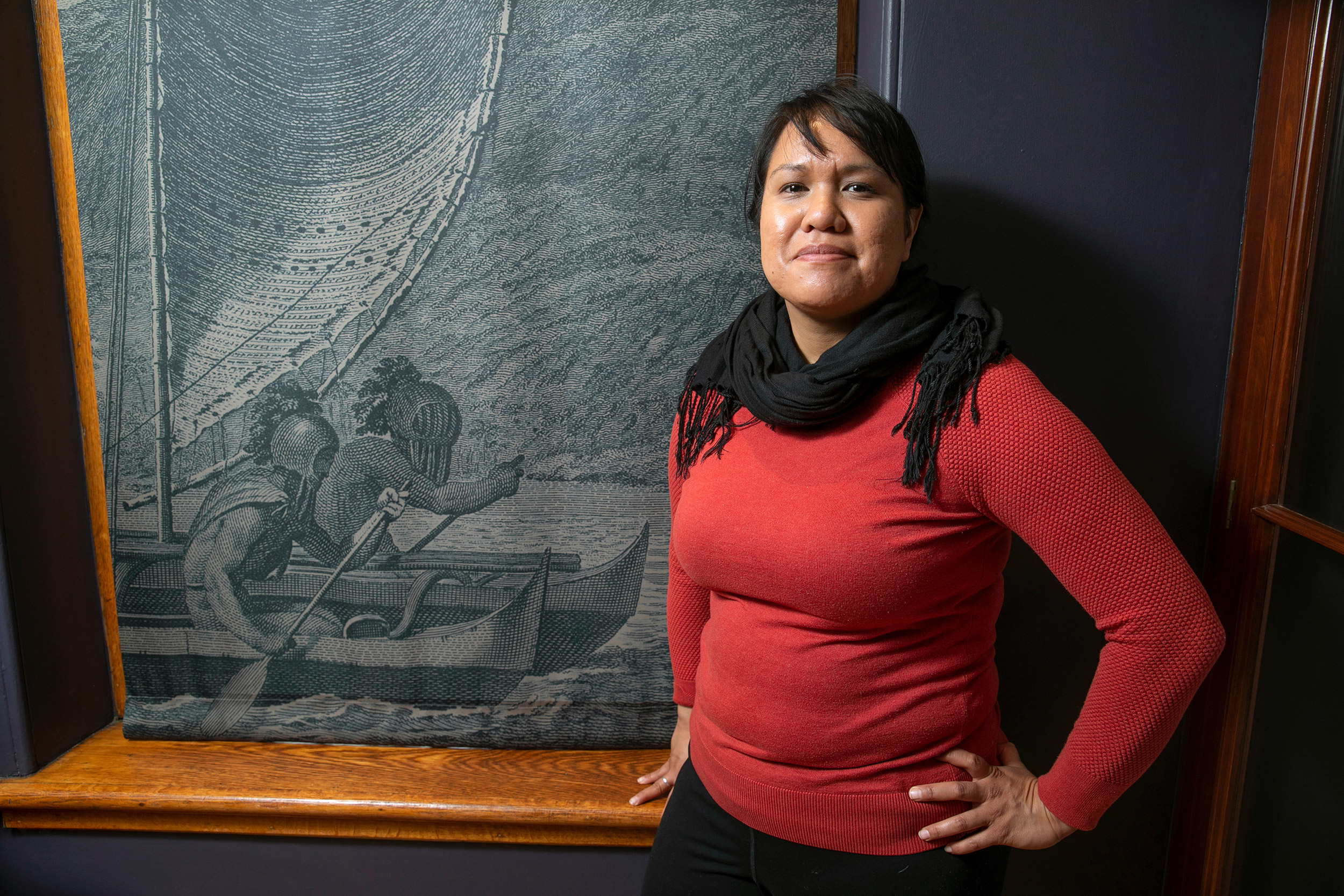
Heidi Brandow, M.Des. ’21
Diné/Kanaka Māoli
Student at Harvard Graduate School of Design
It’s a historic first for Native people. Frankly, it’s a move in the right direction, especially given the fact that the nominee is a female Native leader. Native representation at the Department of Interior is long overdue. It’s an exciting silver lining, given the challenging events over the past year.
Rep. Haaland has a thorough understanding of the needs of Native people and communities. As a member of the Laguna Pueblo tribe and a longtime community organizer, she is familiar with issues affecting Native Americans and is committed to fighting for Indigenous communities.
Under Trump, the Department of Interior sold and leased formerly protected lands at record numbers, thereby deteriorating environmental protections and often thrusting sacred landmarks and national monuments into the hands of developers. Often, lopsided land sales and leases of formerly protected lands were near or within tribal boundaries. Haaland’s nomination and her presence at the helm of the Department of Interior will help re-establish trust and a continued commitment among respective Native nations working with the department.
Courtesy photo

Eric Henson, M.P.P. ’98
Citizen of the Chickasaw Nation
Adjunct Lecturer in Public Policy, Harvard Kennedy School of Government
Rep. Deb Haaland’s likely ascension to the position of secretary of the Interior is welcome news throughout Indian Country. Her nomination sends a strong message that the incoming administration believes Native people deserve a seat at the table when many of the most important discussions take place at the highest levels of the U.S. government.
Seeing a proud, strong Native woman in such a senior position will brighten my day every day, and I expect her tenure as secretary to be far more than merely symbolic to those of us who care about Native inclusion at the top of the federal government. Since her election to Congress, Rep. Haaland has been very active, lending her name to more than 50 draft bills. This potential legislation showcases some of the areas in which she is likely to remain a force for tribal people and issues that Native America cares about. This is not nearly an exhaustive list, but so far, she has used her drafting pen to work toward greater wilderness preservation, and she is a strong advocate for expanded broadband access on tribal lands, which is a longstanding problem that has become even more crucial as we continue to battle the coronavirus pandemic while simultaneously attempting to educate thousands of Native children via distance learning, often in remote rural settings. Furthermore, Rep. Haaland has consistently spoken out about the need to address the lingering harms of the Indian boarding school era, and she intends to implement an aggressive policy to overturn many of the offensive place names that still exist throughout the U.S.; place names that by their very nature insult tribal people on an ongoing basis.
Photo by Lucinda Lee Medford
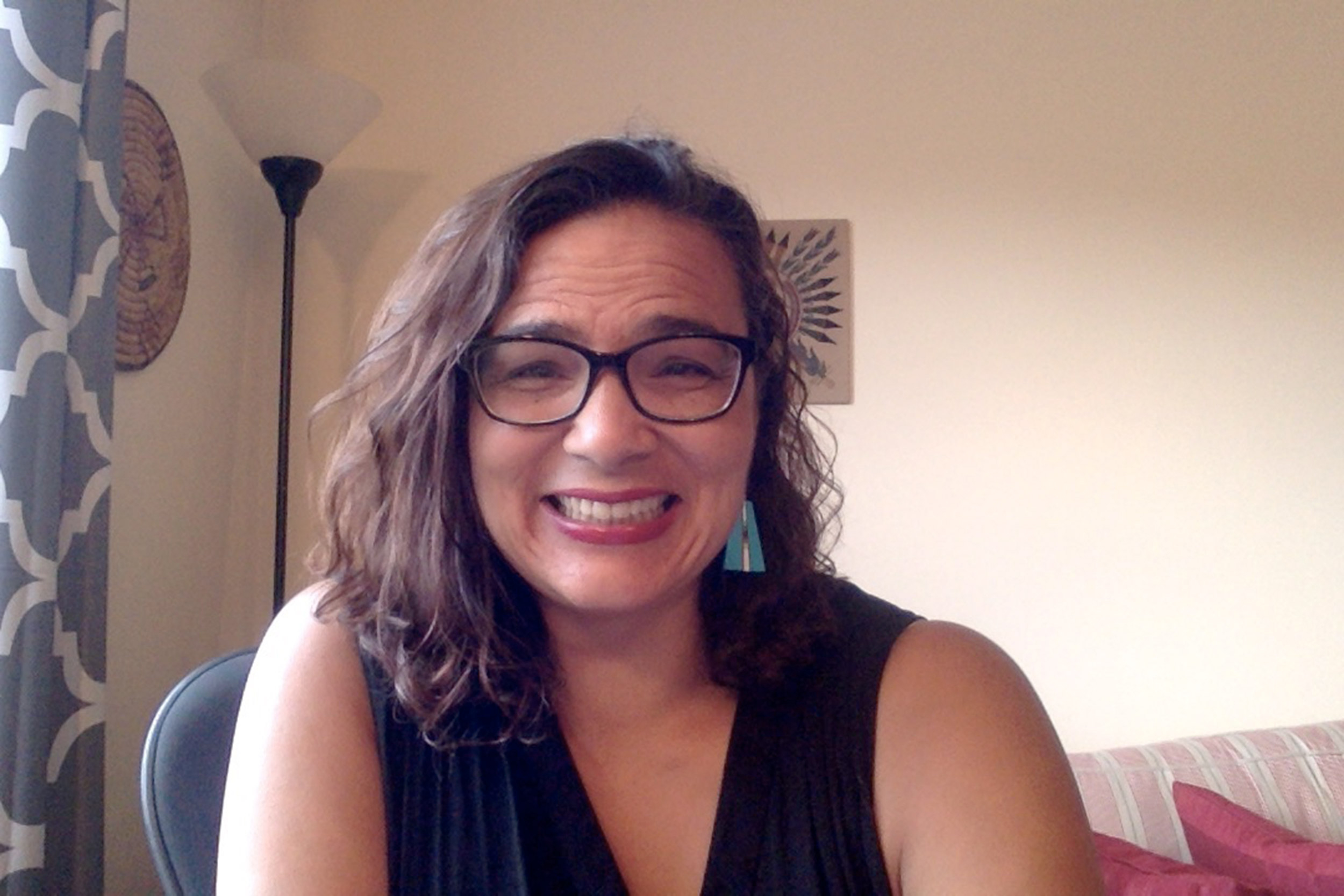
Megan Hill
Citizen of the Oneida Nation of Wisconsin
Program Director, Harvard Project on American Indian Economic Development
I heard a collective cheer across Indian Country when Rep. Deb Haaland was tapped to lead the U.S. Department of Interior by then-President-elect Biden. Facebook, Twitter, and Instagram were alive with posts celebrating the announcement, highlighting her groundbreaking career of service and leadership, filled with “firsts.” But, mostly, the cheers were of collective honor: She is one of our own. As a citizen of Laguna Pueblo, her success shines light on and gives voice to Natives across the country.
Once confirmed, she will step into a department with a legacy of anti-Indian policies engineered to dispossess Indigenous peoples of land and resources. While she will have Cabinet-level decision-making power, she will face competing interests from protecting the environment and elevating Indigenous priorities to managing demands from big oil and climate change deniers. Indian Country may need to adjust expectations, and she will need our continued support. I am reassured, though, that for the first time in history, the Department will be led with Indigenous values and integrity. In a statement she said, “I will be fierce for all of us, for our planet, and for all of our protected land”… And I believe she will.
Photo by Lucinda Lee Medford
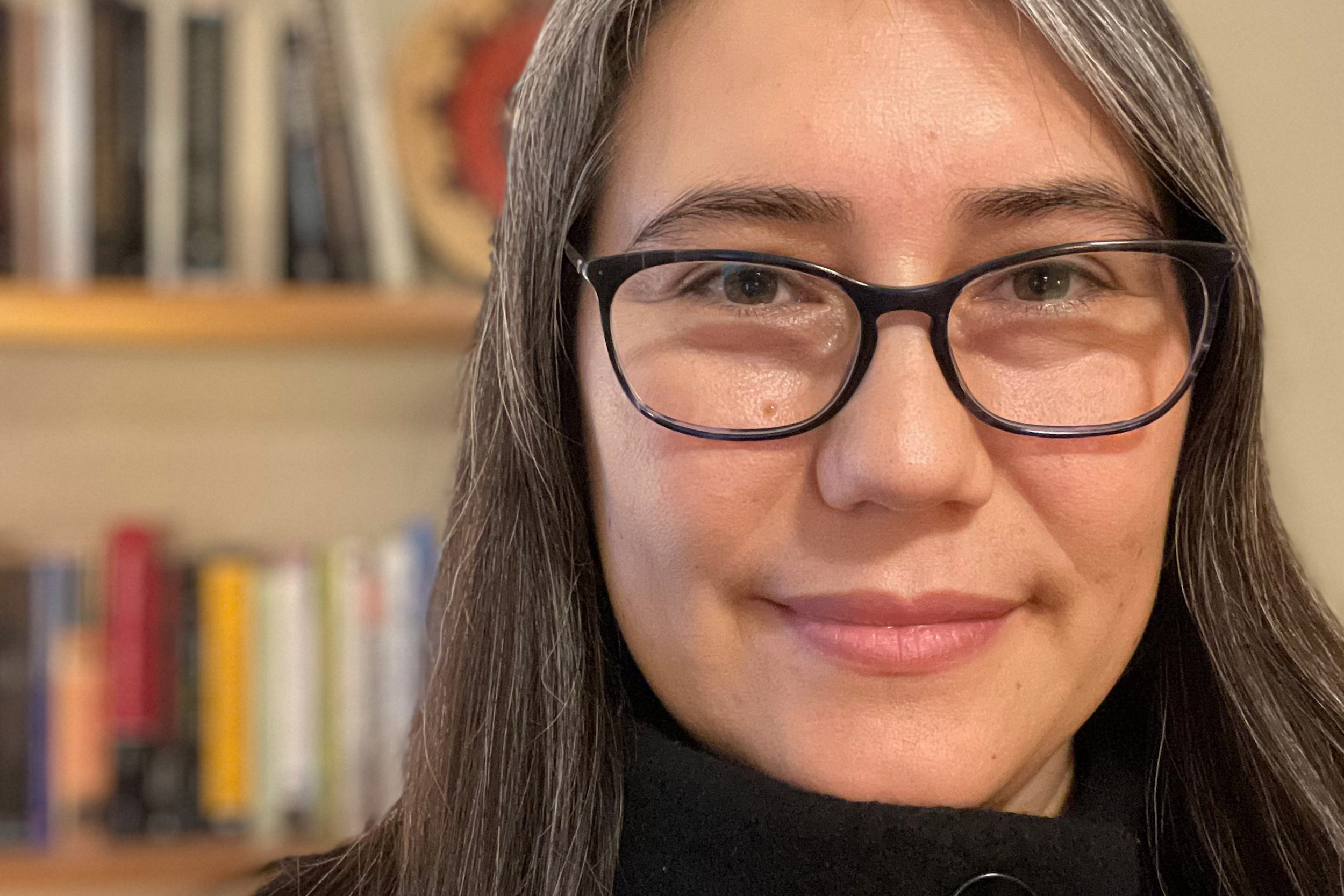
Amy Besaw Medford, Ed.M. ’02
Enrolled member of the Brothertown Indian Nation and of Menominee descent
Researcher at the Harvard Project on American Indian Economic Development
When I was a young girl, it was hard to see female leadership outside my tribe as I was raised on military bases. But I saw the important role that women played within my tribe and within my family. The older I got, the more I saw the generation above me filling in leadership roles, whether it was tribal leaders on a regional or national scale. But it was usually in the tribal context: Indians supporting Indians.
When I entered the Ed School’s master’s program, there was just one senator who was Native: Ben Nighthorse Campbell [senator from Colorado from 1993 to 2005]. Now, there is not just one Native woman in Congress, there are three! And they can support each other and be part of that great alliance of women of color and their allies. As a mother, it gives me hope for my daughter and my son, who can see what is a clear recognition of the roles that women can play on a national scale.
As secretary of Interior, Haaland will be the first Native woman who will be responsible for policies that will affect Native American communities. That’s very powerful. She’s better able to represent the interests of Indigenous communities. As a Native person, Haaland doesn’t have to be given an Indian 101 course, or be taught about tribal sovereignty. She doesn’t have to be given the history of treaties between the U.S. government and the Native nations, and how the government failed its responsibilities. Haaland also knows from direct experience how Native nations govern themselves. She was a tribal administrator: She gets the nuances that exist in Indian country. As the first people of this land, I love that we have her protecting our land. For Native people, it’s inspiring, prideful, and empowering to see Haaland, a strong woman fighting for our rights and for the protection of our land. It is going to be a tough job; she won’t be able to please everyone. But I have faith in her leadership and I think she will serve our nation well.
Photo by Laura Costello
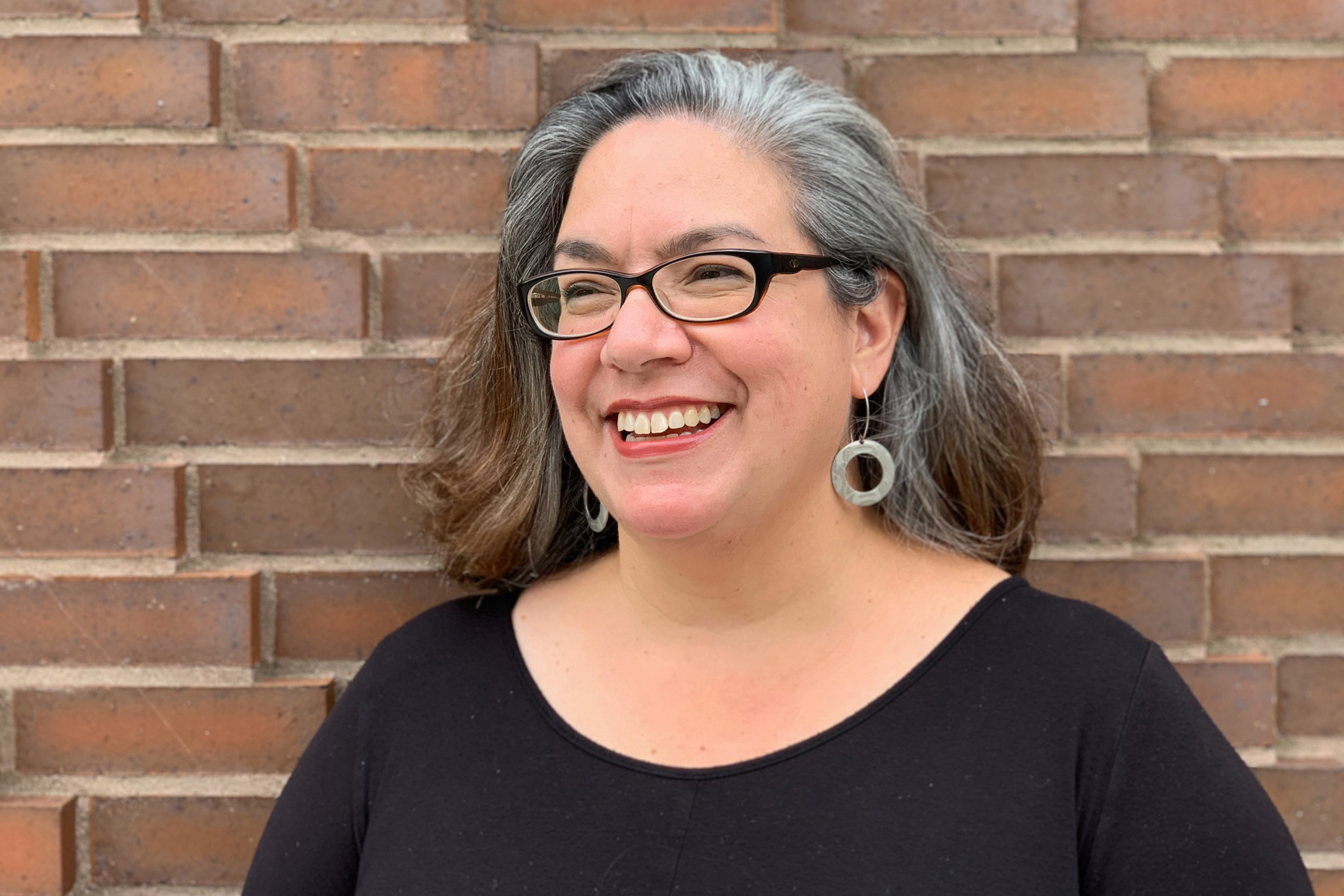
Meredith Vasta
Member of the Turtle Mountain Band of Chippewa Indians
Collections Steward at Peabody Museum of Archaeology and Ethnology at Harvard University
As a Turtle Mountain Chippewa woman and museum professional, the appointment of Haaland is significant for several reasons. First, it is long overdue that the Indigenous communities most directly impacted by the success or failure of the Department of the Interior has someone with both lived experience of these impacts, as a citizen of the Laguna Pueblo, and policy experience as a Western legislator. This division is responsible for meeting the trust obligations of the federal government with hundreds of Native Nations, like my own, with whom they have entered into solemn political agreements, or treaties.
As a museum professional, this division also funds the repatriation efforts of tribes through the Tribal Historic Preservation program, a critically important obligation tribes have to bring their relatives home. This division is woefully underfunded, making it hard for tribes to fully research and return their ancestors to their homelands or engage in necessary consultation with the museums that may hold them.
As a Native woman, soon-to-be Secretary Haaland’s advocacy for missing and murdered Indigenous women underscores for me her connection to issues directly affecting Native communities, and I am certain that advocacy will continue in her new role.
Interviews were edited for length and clarity
“A Conversation with Congresswoman Deb Haaland,” moderated by Linda Bilmes, Daniel Patrick Moynihan Lecturer of Public Policy at the Harvard Kennedy School, is available for viewing on the Institute of Politics website.





